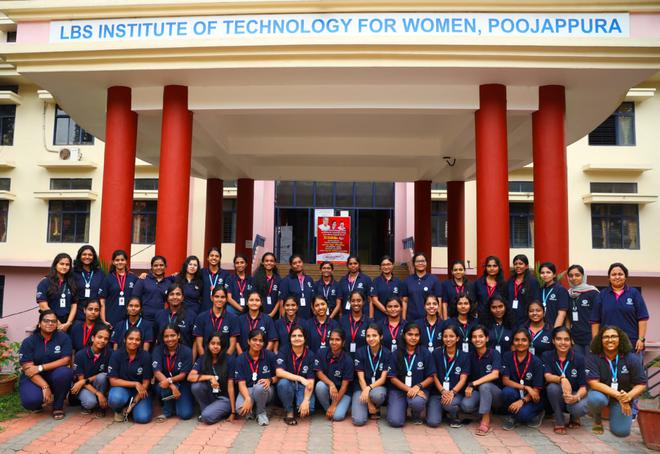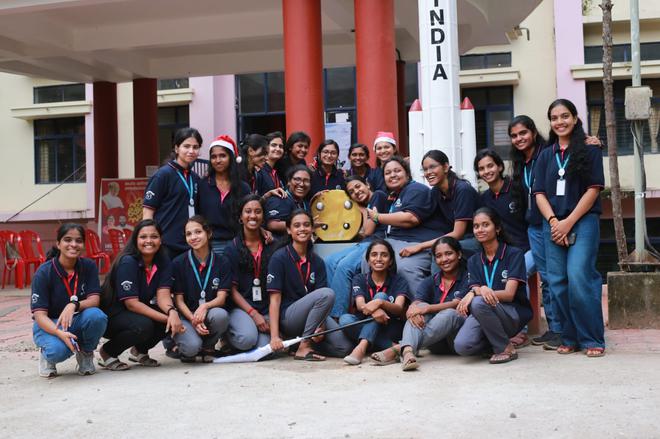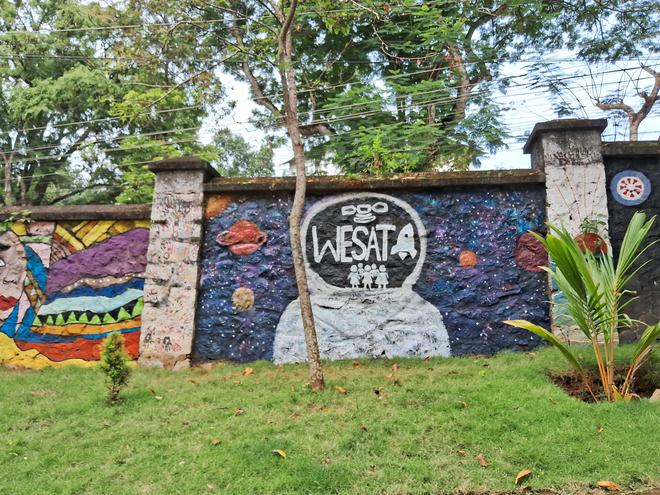The new year opened on a thrilling note for the Lal Bahadur Shastri Institute of Technology for Women (LBSITW) in Thiruvananthapuram with a nanosatellite developed by its students launched aboard an Indian Space Research Organisation (ISRO) mission on January 1 (Monday) morning.
The announcement of the mission’s success from the Satish Dhawan Space Centre, Sriharikota, was received with cheers at the LBS Institute’s seminar hall where the launch was shown live on a big screen.
WESAT, short for ‘Women Engineered SATellite,’ was launched aboard the Polar Satellite Launch Vehicle-C58/XPoSat mission as one of 10 secondary payloads. The 60th mission of the PSLV had as its main payload the XPoSAT, a dedicated scientific satellite from ISRO.

The 1.4-kg WESAT is billed as the first Indian satellite to be fully designed and developed by women. The satellite is meant to study ultraviolet radiation and its impact, according to the institute’s space club, which was responsible for its development with technical assistance from ISRO.
Lizy Abraham, Assistant Professor and Principal Investigator of the satellite project, and several members of the space club were in Sriharikota for the launch. The rest of the team watched it live at the institute with the other students and the teachers.

“It was really exciting. Five years of hard work has paid off. We have also received the initial data from WESAT,” Prof. Abraham told The Hindu from Sriharikota after the launch.
“It’s a big moment for us. The project was conceived in 2018 and ISRO had cleared it in 2019. Many of them have graduated, and we have 42 members in the club at present. In all, 150 women have worked on WESAT,” Sheril Mariam Jose, one of three coordinators of the project who had watched the mission live at the institute here, said.
Speaking at Sriharikota after the mission, PSLV-C58 mission director Jayakumar M. said the WESAT project “showcases women empowerment in the field of science and technology.”
Ground monitoring station
As part of the project, the institute had constructed a ground monitoring station, which had become operational last year.
For launching WESAT aboard an ISRO mission as a co-passenger satellite, the institute had also signed an agreement with the Indian National Space Promotion and Authorisation Centre (IN-SPACe), the single-window agency which handles space sector activities of private entities.
J. Jayamohan, the principal of LBS Institute, praised the students and the faculty members for the hard work they had put in. “The institute started work on the satellite project in 2019, but the COVID-19 pandemic delayed it. Otherwise, it could have been launched earlier,” Dr. Jayamohan said.
Funds were a major issue, he recalls. The project cost ₹30 lakh. Of this, the Department of Science and Technology (DST), the Government of India, contributed ₹10 lakh, while the Kerala Government, through the Kerala Startup Mission, pitched in with ₹14.4 lakh. The rest was met through allocations by the Kerala Technological University, and from the institute’s own funds.

“Now that the satellite is in orbit, we have to collect the data from it for analysis and interpretation. We will hand over the findings to ISRO and the State Disaster Management Authority,” Dr. Jayamohan said.
The sprawling campus of the LBS Institute, a State government undertaking, proudly displays commemorative symbols of its pet project.
These include a scale model of the PSLV-C58 with a replica of WESAT beside it and a wall art on the satellite.







